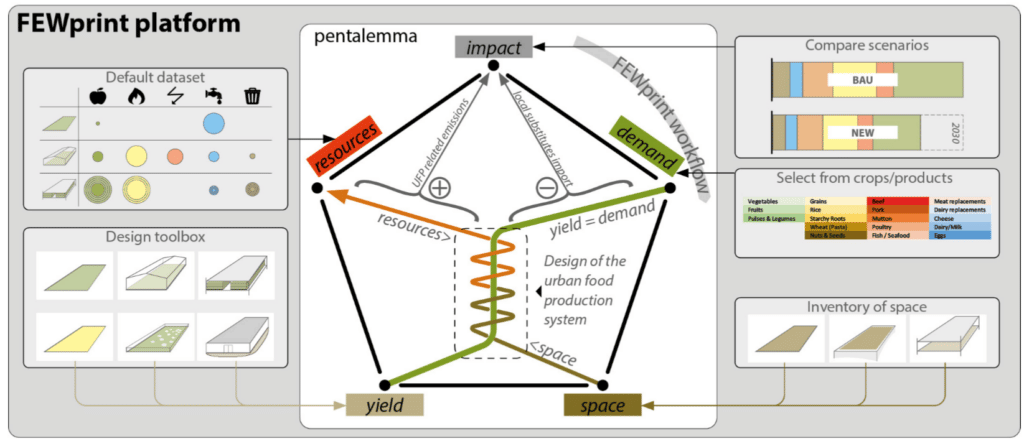Join JPI UE
Faq
FAQ
Please click here for the frequently asked questions we collected.
If you have an additional questions you are welcome to mail us at info@jpi-urbaneurope.eu
A solution needs to be found for a FEW nexus. This internationally diverse project, based around urban design practice, sees urban agriculture as a key facilitator of the Nexus, needing water and energy to become productive. Working directly with living labs in some of the most vulnerable communities in the partner cities, the team aims to co-design new food futures with stakeholders that leave them less vulnerable to forces disturbing the nexus. The lessons learned from these stakeholder workshops will be shared outside the team, so that lessons learned locally can be applied globally. Read this results interview!

The FEWprint tool developed by M-NEX is an innovative metric to measure the CO2 emission from food-energy-water systems down to the neighbourhood level, overcoming a limitation of existing tools. FEWprint provides policy makers with a key performance indicator that enables them to compare neigbourhoods and to see where the best local potentials are to reduce CO2 emissions from food, energy and water production in order to reduce CO2 emissions. If policymakers know where the highest demand for food, water, and energy is, they can decide where to generate resources such as green energy, green buildings and urban agriculture.
The Moveable NEXUS: Design-led urban food, water and energy management innovation in new boundary conditions of change
Duration: 2018–2020
Internet: m-nex.net
Contact: Wanglin Yan, Keio University
E-mail: yan@sfc.keio.ac.jp
Budget: 1.670.883 €
Partners: Keio University, Delft University of Technology, Queens University Belfast, Institute for Global Environmental Strategies, Qatar University, Maccreanor Lavington, University of Technology Sydney, University of Michigan